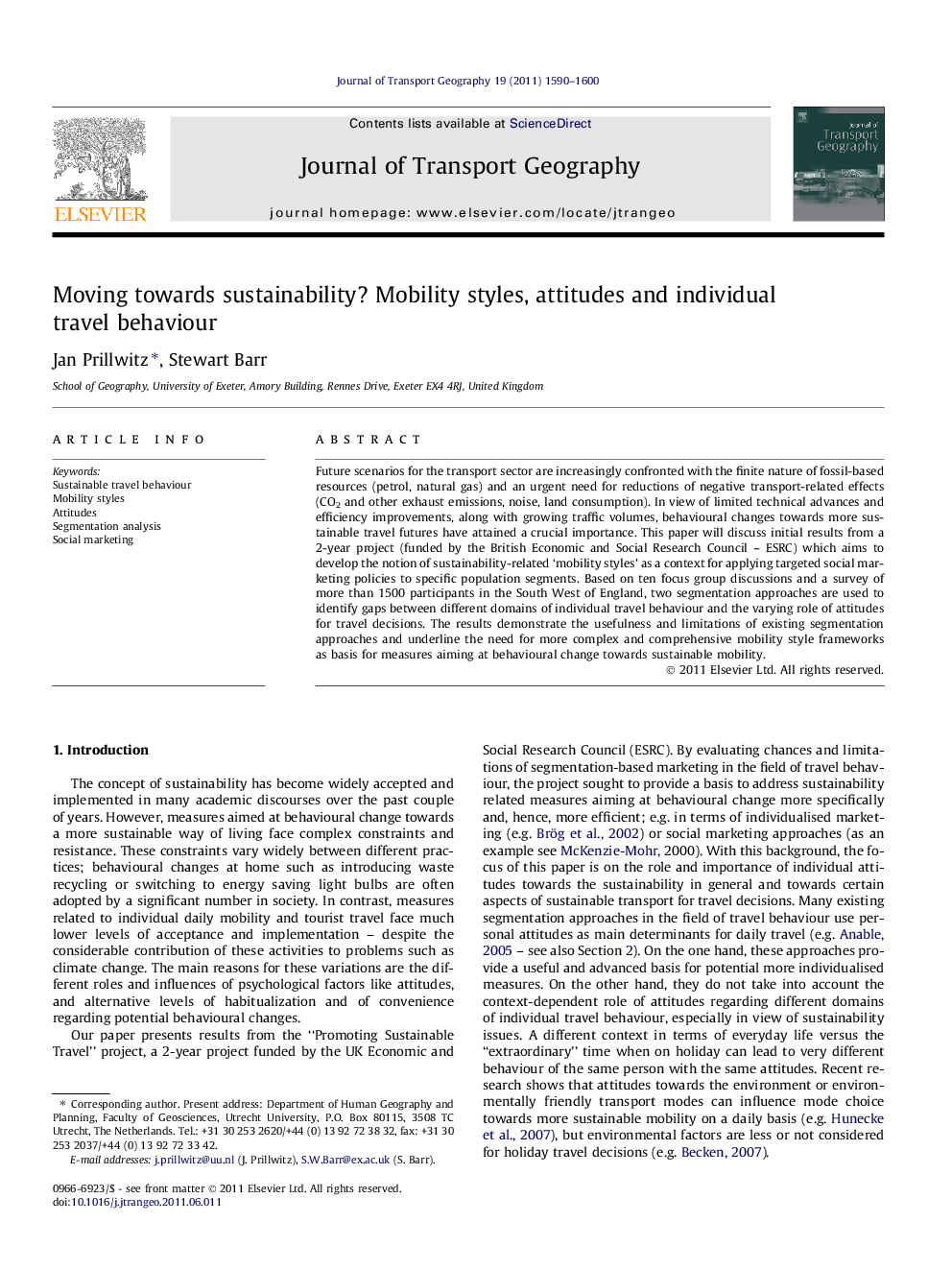| Article ID | Journal | Published Year | Pages | File Type |
|---|---|---|---|---|
| 1059610 | Journal of Transport Geography | 2011 | 11 Pages |
Future scenarios for the transport sector are increasingly confronted with the finite nature of fossil-based resources (petrol, natural gas) and an urgent need for reductions of negative transport-related effects (CO2 and other exhaust emissions, noise, land consumption). In view of limited technical advances and efficiency improvements, along with growing traffic volumes, behavioural changes towards more sustainable travel futures have attained a crucial importance. This paper will discuss initial results from a 2-year project (funded by the British Economic and Social Research Council – ESRC) which aims to develop the notion of sustainability-related ‘mobility styles’ as a context for applying targeted social marketing policies to specific population segments. Based on ten focus group discussions and a survey of more than 1500 participants in the South West of England, two segmentation approaches are used to identify gaps between different domains of individual travel behaviour and the varying role of attitudes for travel decisions. The results demonstrate the usefulness and limitations of existing segmentation approaches and underline the need for more complex and comprehensive mobility style frameworks as basis for measures aiming at behavioural change towards sustainable mobility.
► We use two different segmentation approaches for a dataset of 1500 participants. ► Results identify gaps between different travel domains and changing attitudinal influences. ► The varying role of attitudes highlights possible trade-offs between these domains. ► Segmentation approaches need more complex mobility style frameworks, accounting for potential negative spill-over effects. ► New frameworks could improve efficiency, effectiveness and comprehensiveness of sustainable travel measures.
